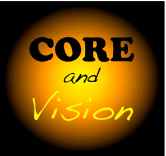You and Your Inner Self – A powerful Relationship

How can you and your inner self have a powerful relationship? How can it be a relationship at all? When we typing “relationship” into Google search there are many results, I have picked one definition that seems to be very common. Here a relationship is being described as “the way in which two or more people, groups, countries, etc., talk to, behave toward, and deal with each other.” According to this a relationship needs to have two or more people. How about self-talk? Have you ever talked to yourself? Be honest, you don’t have to tell anyone. You only read an article.
How often do you have a dialog in your head, fighting over a decision, discussing pros and cons, beating yourself up about for a mistake you have apparently made, celebrating your victory, or simply thinking about something? Who do you have this conversation we call self-talk with? How can you have a relationship with your inner self? And how can it be a powerful one?
Self-talk is initiated by information that comes through our senses. For instance when it is cold we might think: “It is cold”, we feel the cold, we start shivering, we might reason: “I better get a jacket”, and we might act and getting one. Most of the self-talk is minor and we hardly recognize it. Everything seems to function automatically starting with a trigger of our senses, then the thought, the feeling, the resolution, and eventually there is an action. Often we only refer to our feelings about a certain event or situation. The fact however seems to be colored with our experiences and beliefs. This is all fine as long as we would have only positive experiences and an empowering belief system. Unfortunately that is rarely the case.
So self-talk can become a major opposition when we have a complex thought process about let’s say a decision we have to make. For instance it is a decision whether to stop or to continue smoking cigarettes. We know at that decision-making stage that cigarettes are bad for us. Smoking affects our health, it stinks and cigarettes are expensive, too. We reason that there is no true benefit for us at all. But our self-talk reasons differently. It tells us, that we can’t stop smoking. It reminds us on an occasion when we weren’t allowed to smoke or when we have tried to quit before. We start remembering how we have felt at that time. Soon our reasoning we have made about smoking nearly disappears. Our mind had created a belief based on previous experiences that we can’t live without smoking cigarettes. And this belief seemingly filters all information about smoking whether we are aware of these them or not. When aware we might experience a sense of relief once we lit a cigarette after fighting against this belief.
Let’s summarize: Our five senses as hearing, sight, touch, smell, and taste take all new information to our mind where it is transformed into a thought already filtered by our belief system that has been formed by previous experiences. When the news is compatible with what we know already the mind is happy to let them in and we even might experience a so-called light bulb moment. But opposed to that, if the mind can’t find any compatible connection within the belief-system, it rejects the new information and the argument in our mind starts up. Thoughts starting with: “I can’t …” or “I am not …” are the ones we should pay attention to as they might indicate a limiting belief. These thoughts are usually responsible for negative emotions as anger, fear, being upset, feeling unworthy, and so on.
There is a way to tame your mind though. Your relationship to your inner self is as important as any external relationship. What do you value in a close friend, partner or a colleague? Most people value a genuine interest, being listened to, and others. Your inner self is valuing what you value in others too. In showing interest and actually listening to your inner voice instead of arguing, you might realize the wealth within your uniqueness. You might figure out that there are beliefs that you have outgrown. You might find that you behave in certain ways that is not entirely beneficial for your health, your external relationships, or for your job. You might realize that you actually have a choice, a choice of reframing limiting-beliefs into empowering ones, a choice of accepting who you are and what you have experienced so far, a choice to love yourself the way you truly are.
Once you master this relationship between you and your inner self, you have truly created a powerful relationship. Your inner self gives you all the acceptance, confirmation, respect, and love you might seek in external relationships. This too might give you the freedom to unconditionally love your partner, to genuinely be a part of your community, and much more. A powerful relationship with your inner self may heal your life, your health, and your external relationships.
(Sandy Seeber, Life & Intuitive Coach – October, 2011)


Pingback: The magic of four sentences! | sandyseeber
Pingback: Relationships – 7 Steps to Healthier Relationships | sandyseeber
Hello, I read your new stuff on a regular basis. Your humoristic style is awesome, keep doing what you’re doing!
LikeLike